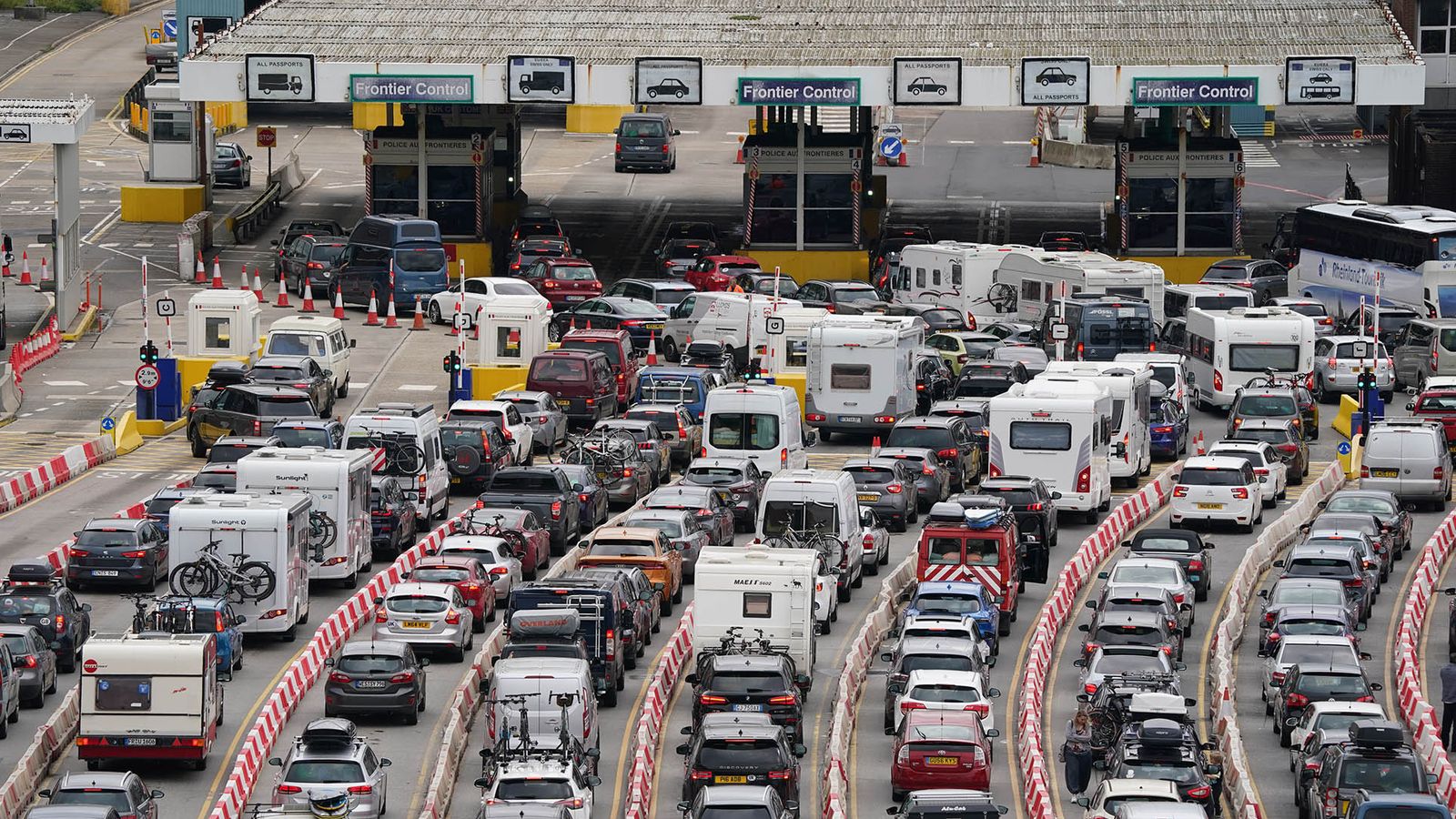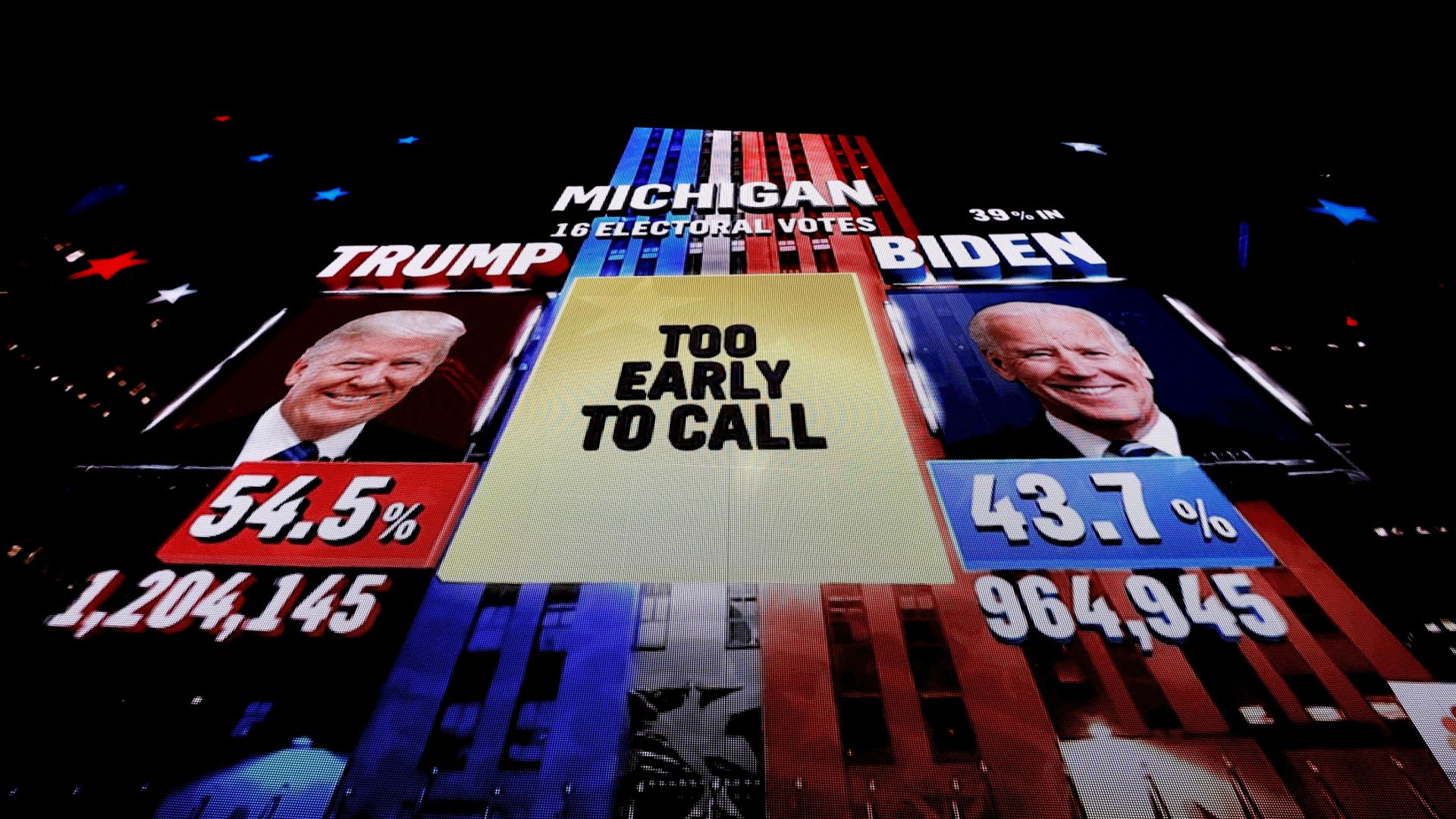The government has announced a fifth delay to post-Brexit checks on EU imports amid concerns the new system would fuel food inflation.
The first stage of the new border controls, which have already been delayed four times, was due to be rolled out this October but now won’t be implemented until January 2024.
Politics latest: ULEZ protesters descend on Downing Street
Downing Street said the timetable was being revised to give businesses more time to prepare for the changes, which include more health and safety checks on food and animal products entering the country.
The Tories have come under fire for the latest delay, with the Lib Dems accusing ministers of performing a “humiliating U-turn” and Labour saying they had allowed the issue to become a “chaotic mess”.
Equivalent checks have been in place for UK food exports to the EU since Britain left the bloc’s single market in January 2021, with British producers long-arguing this puts them at a commercial disadvantage.
Minette Batters, president of the National Farmers Union (NFU), said that for the past three years farmers “have faced the full reach of EU controls on our exports while the EU has enjoyed continued easy access to the UK marketplace”.
Metro Bank accused of closing account over Brexit by Reform UK leader
Joining Indo-Pacific trade bloc could only boost UK GDP by £1.8bn – and no deal with US anytime soon
‘A significant milestone for UK trade’: Britain signs deal to join £12trn Indo-Pacific trading block
She said the delay is “hugely frustrating” for food producers.
“This is not just an issue for competitiveness, with British farmers faced with additional costs and paperwork, but also for our nation’s biosecurity,” Ms Batters said.
“Proportionate and effective controls are necessary if we are to prevent outbreaks of pests and diseases that threaten human, animal and plant health, the safety, quality and biosecurity of our food products and the confidence of our trading partners.”
The NFU called on the government to use the latest delay “wisely” and address concerns expressed by many in the supply chain about the cost of the new system.
Please use Chrome browser for a more accessible video player
Fears new system could push up food prices
After a draft version of the Border Target Operating Model (BTOM) was published in April, traders warned they would not be able to absorb the associated extra costs of the new checks and these will likely be passed onto consumers.
Last week, the Financial Times reported the government chose to enact the extension as Chancellor Jeremy Hunt feared the additional red tape would push up food prices during an inflationary crisis.
In a press release confirming the delay, Downing Street admitted the checks will increase inflation but said this would be minor, at 0.2% over the next three years.
Marco Forgione, director of the Institute of Export and International Trade, told Sky News giving businesses more time to prepare “will help allay any potential risks” of food being imported into the UK from being negatively impacted.
Welcoming the delay, he said: “The UK can reap the benefits of this world-class new digital border if businesses of all sizes are equipped and armed with the right knowledge. Now is the time to prioritise educating businesses on trading sustainably, safely and securely.”
Checks on EU imports are legally required under the terms of the Brexit trade deal with the EU.
The BTOM is a global regime for security and biosecurity controls, involving less bureaucracy and more digitisation than the original post-Brexit import model that would have been introduced in 2022.
According to the revised timetable, starting from January 31, 2024, imports of medium-risk animal products, plants, plant products, and high-risk non-animal origin food (and feed) from the EU will require health certification.
By April 30, 2024, these items will undergo documentary, identity and physical checks, while imports of sanitary and phytosanitary goods from other parts of the world will adopt a new risk-based approach.
From October 31, 2024, safety and security declarations for EU imports will become mandatory, along with a more streamlined dataset for imports.
‘Humiliating U-turn’
Cabinet Office minister Baroness Neville-Rolfe said once fully implemented over the next 14 months, the new model will bring “considerable benefits to the UK economy and to UK trade, and the government stands ready to support businesses through this transition”.
The British Chambers of Commerce agreed the new approach could bring many benefits but warned the timings must not slip again.
Downing Street signalled that there would be no more delays amid criticism from opposition MPs.
Nick Thomas-Symonds MP, Labour’s Shadow International Trade Secretary, said the announcement “confirms the chaotic mess the Conservative government has created on this important issue, which is now set to continue”.
Liberal Democrat Treasury and Business spokesperson Sarah Olney said: “This humiliating U-turn is just the latest example of Conservative chaos.
“Ministers have been forced to delay their plans amid warnings they’d make food even more expensive. Meanwhile, small businesses spent millions preparing for the changes and are now left wondering what’s next.”
The prime minister’s official spokesman said: “Throughout this we have been mindful of the impact of inflation, but I am not aware of any plans to move beyond the dates we have set out. We are introducing a sufficient time to enable businesses and those affected to plan.”










